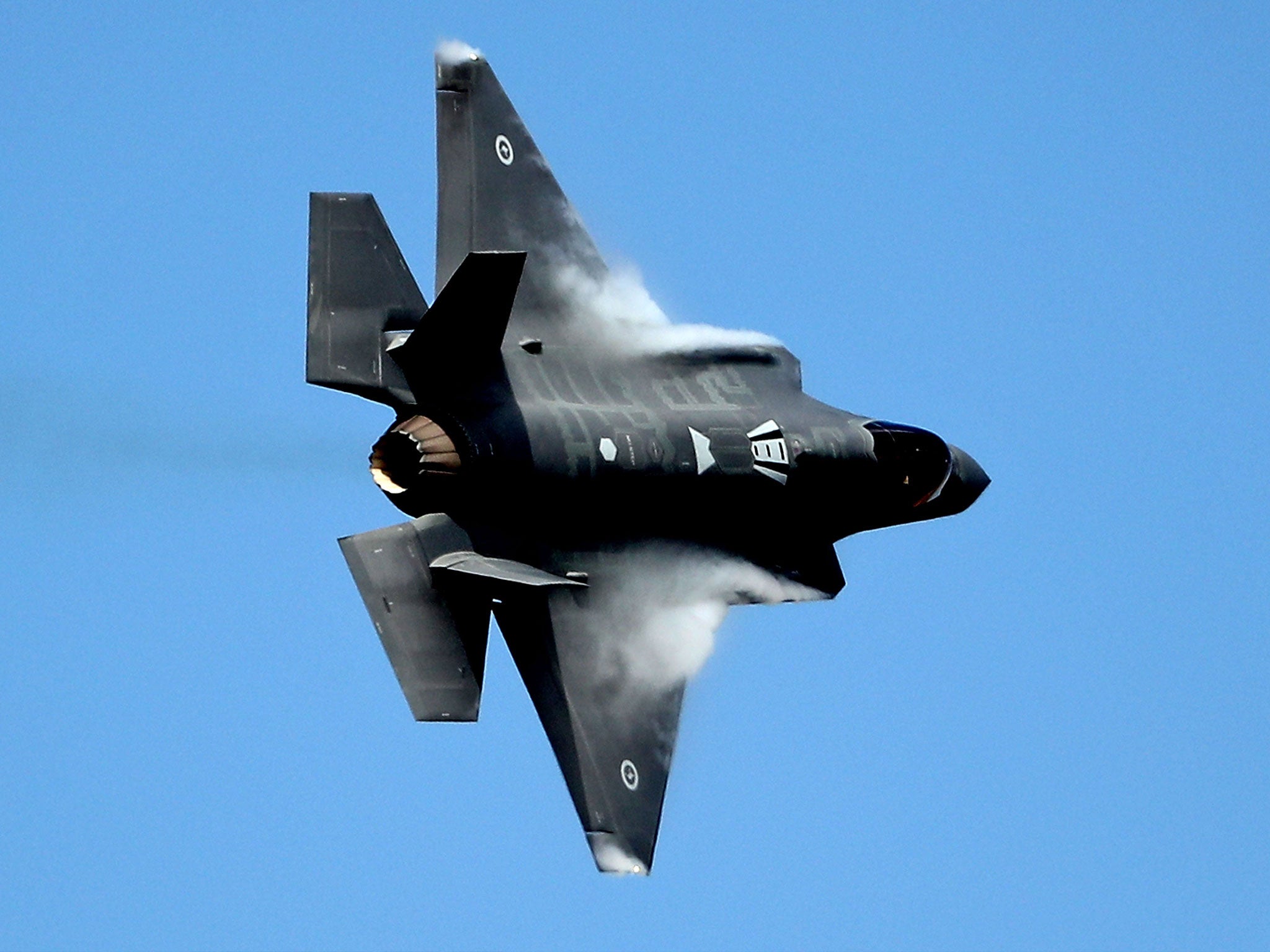Global arms sales increase for first time since 2010
Military kit worth £280bn sold in 2016, latest figures show

Global sales of weapons and military services have risen for the first time in five years, helped in part by an increase in sales by British companies.
Weapons – many of which are fuelling deadly conflicts in the Middle East – are now being bought and sold at the highest level since 2010, with sales up more than a third (38 per cent) since 2002.
Military kit worth $374.8bn (£280bn) was sold in 2016 by the industry’s top 100 companies, an annual review by the Stockholm International Peace Research Institute (Sipri) found.
The findings came as UK firm BAE Systems signed a $6.7bn deal with Qatar to buy 24 Typhoon fighter jets.
British arms sales rose 2 per cent last year and now amount to almost 10 per cent of global sales, researchers found.
Germany’s arms sales jumped 6.6 per cent while South Korean companies notched up 20 per cent more sales than a year earlier.
Sipri’s Siemon Wezeman said Seoul was “aiming to realise its goal of becoming a major arms exporter”.
The Swedish institute said the latest figures revealed the first year of growth among the world’s top 100 arms sales after five consecutive years of decline.

Professor Trevor Taylor, of the Royal United Services Institute, said tensions and conflict around the world meant an increase in defence sales was “scarcely surprising”.
Among the nations to see an increase were the US and Russia – both of which are engaged in conflicts in Syria.
Sales by Lockheed Martin – the world’s largest arms producer – rose by 10.7 per cent in 2016, the report found, linked to the sale of F-35 combat aircraft.
The booming books of some of the world’s largest defence companies can be explained both by an increasingly militarised world and spiralling costs of complex battlefield equipment, Professor Taylor said.
“Equipment costs are going up and the trend is not abating," he told The Independent.
“US defence budgets have been constrained since 2011 by the Budget Control Act, but in much of the rest of world there have been pressures to increase defence spending.”
UK arms sales to Saudi Arabia have been among the most controversial transfers of military hardware anywhere in the world, with critics of the Government warning that the equipment is being used by a country that refuses to end its blockade of Yemen.
Thousands of people have been killed in that conflict, which pitches a Saudi-led coalition against Iran-backed Houthi rebels.
UK sales of arms and military kit to the Saudis reached £1.1bn in the first half of 2017.
Meanwhile, the US Defense Security Cooperation Agency, which implements foreign arms sales, announced sales of $41.93bn for the year to the end of September, a 25 per cent rise on the previous 12 months.
Sipri’s report found an annual increase of 1.6 per cent in 2016, but warned that the figure would be far higher if Chinese defence firms made their sales figures publicly available.
Commenting on today’s statistics, Dr Benedict Wilkinson of the Policy Institute at King’s College London said: “This is a clear indication of states responding to what they perceive to be a more volatile and uncertain world.
“To a degree, states are beginning to look at the International System with more caution and more concern and are seeking to allay that by procuring more high tech equipment and material.”
Join our commenting forum
Join thought-provoking conversations, follow other Independent readers and see their replies
Comments
Bookmark popover
Removed from bookmarks